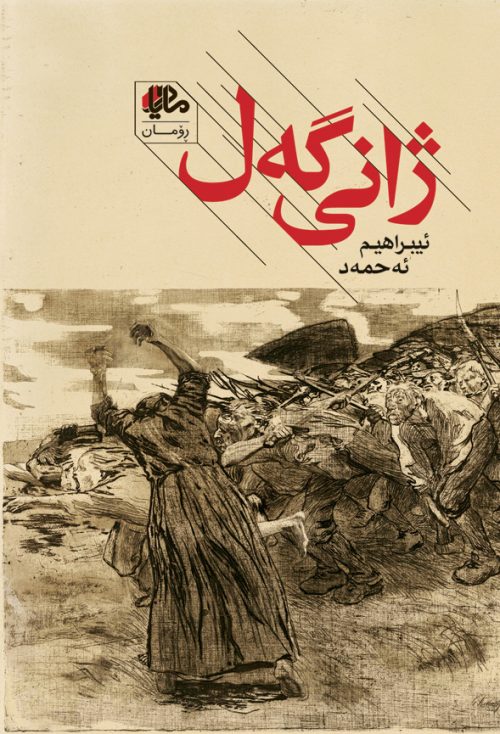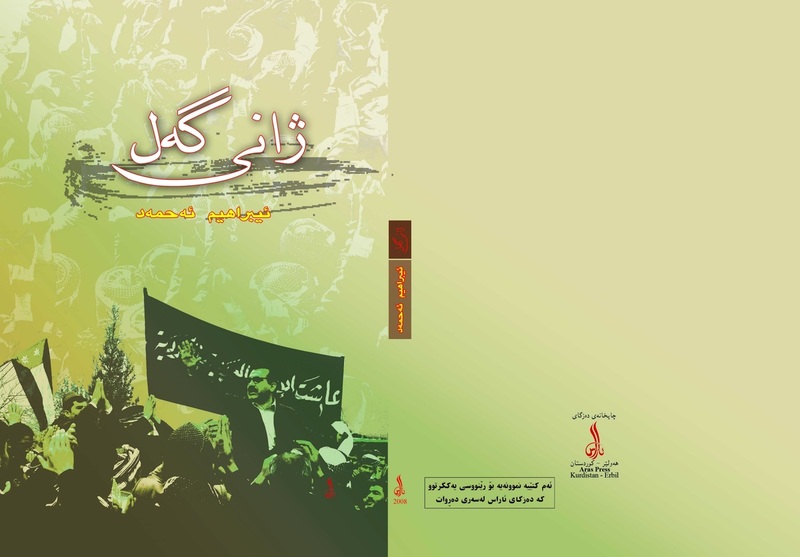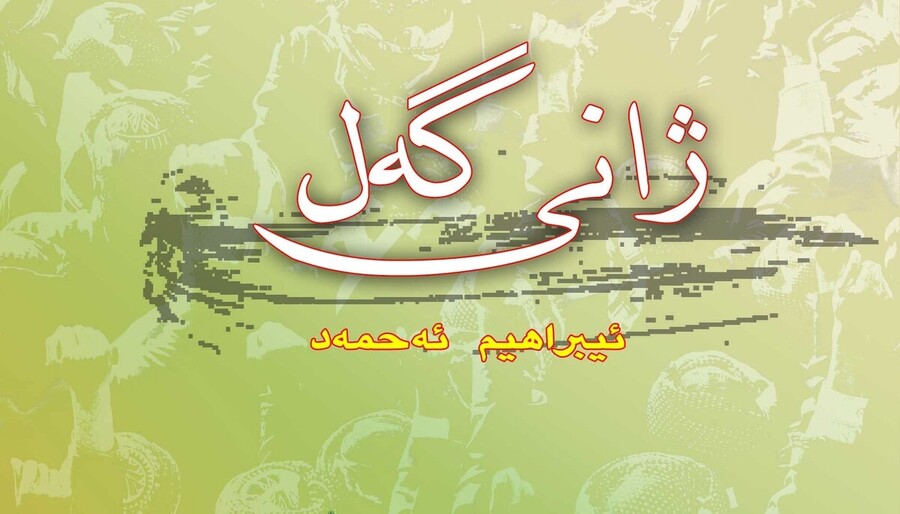Although Ibrahim Ahmad has been known for some of his poems and the novel "Jani Gal" (The Pains of the Nation) for a while, however, if we want to discuss his work in the field of writing, we need to pay more attention to this capable writer's ability in narration rather than poetry. From the 1940s, and to be exact from 1942 up to now, his stories have been published. Later, in 1944, he wrote Jani Gal novel. This novel was written twenty years after Jamil Saeb and Ahmad Mukhtar Bag Jaff's attempts, but these three works' distinctions both in the content and storytelling techniques are very much.
The author of Jani Gal knew all the world's literature experiences. He chose the novel as a special genre and narrated his nation's pains within its framework.
This novel's intellectual atmosphere is close to Jamil Saeb's works politically speaking. There is a political atmosphere present throughout the whole story. This is a noticeable feature of the Southern part of Kurdistan writers' narrations in the early years of the twentieth century.
Like many other novels that have been written decades later and they have one of the new signs of narration that is beginning the story from the end, Jani Gal novel also starts from the end of the story. The main character of this novel sits in a bus and goes to the city of "Ch" after ten years. It means that the last events of the author's life in the narration are mentioned at the very beginning of the story. Later, the author narrates those ten years, before and after that, in the prison with a flash back. This shows that the author avoids a linear narration from the beginning and by taking over the temporary structure of the narration, he makes an irregular time setting, and later, like any other well-structured novel, sometimes the events are related one after the other and sometimes a part of the novel retails a time before those ten years of his imprisonment and another part of the events belong to the present day of the character's life.

In addition to this kind of applying the form that did not exist in the previous writings, a meaning game is also played with the reader within the novel. If the novel begins with the childbirth pain of the main character's wife, Jwamer, and the majority of the events are about Jwamer's character and the ten years of his life that was spent in prison, thus, this question will arise for the reader that why is it the nation's pain? Was not that pain Jwamer's wife who was about to give birth when Jwamer left the house to seek help but he could not go home until after ten years? Thus, what is the nation's pain in the story?
The reader is hoping that the answer to this question will be answered in the course of the events. This question remains in the reader's mind until the end of the novel as a suspension point, but at the end of the novel, the reader finds the meaning they were looking for by comparing these two kinds of pain. A comparison that the philosophy of the main characters of the story is also looking for it and through the narration of the events the answer will be revealed to the reader.
The novel's journey through the distant past of the main character and his near and present past absorbs the reader with the atmosphere of the story. It was mentioned that the story begins with the near past of the main character i.e., Jwamer. Ten years before he was recently released from prison, and he had come to his cousin's house, Lawa, where his wife and child are living with him now. He has come to ignore his nation's pain finally and engage himself with his own life's pains and problems and find a solution. Now he has come to compensate for all those times when he left his home to find a doctor for his wife who was about to give birth and he went into the demonstration and after a struggle and fight that happened after that in "Ch" city, he could not go back home and was forced to forget about his wife in her hardest times. Later, in other parts of the novel he mentions that his release from prison did not make him give up his hope in his nation, however, between his family and his nation from an existentialism perspective, he chose his family and did not want to make them live in hardship anymore. Because he believed that supporting his own family in a difficult situation that he had caused was more prior than supporting his nation.
But the writer also narrates Jwamer's far past periods of life in order to create enough space for the reader to figure out and connect the events and even to know Jwamer and his sufferings more precisely. His far-reaching past is related to six other characters. Fata Bor, his uncle's wife, Askol and Lawa, his cousins, Kale and her mother Piroz Khatoon. Each of these characters played a role in Jwamer's far-reaching past and they were important in his near future or they are involved in his present.
Narrating Jwamer's far-reaching past goes back to ten years ago before he was imprisoned and before he got married when he was still a young man.
Jwamer is very young and he is working in an office and he lives in a house with his mother. His mother has an important role in his life and takes care of him all the time. She is worried that she may die without seeing him get married so she thinks she has to find a match for him.

Jwamer loves his cousin, Askol, and she loves him, too. However, his uncle's wife, Fata Bor, disagrees with them to get married. His cousin Lawa was a good friend of him all the time, either in the ten years of his imprisonment or even that time when Jwamer asks Lawa to help him propose to Askol's family to gain their blessing.
They go to Askol's house for a marriage proposal but his uncle's wife insults them and makes them leave the house. This happened twelve years before the ten years of Jwamer's imprisonment. It means the story goes back to twenty-two years ago.
Around this time, Piroz Khatoun and her daughter Kale have come to Jwamer's house as their guest from a village called Gulanawa to plaintiff their husband and father's murder. Their stay at Jwamer's house was one of the reasons for Askol's mother's disagreement with their marriage and it also caused the rest of Jwamer's life event until the present day.
Jwamer and Kale fall in love and get married.
The rest of the story is about how they get married and their wedding.
After Kale reaches the point when she is about to give birth, Jwamer leaves the house and does not see Kale, Piroz Khatoun, his mother, Askol, or Fata Bor anymore.
From here, the novel narrates the present day of Jwamer's life when he is released from prison.
Before we discuss the way of this present-day narration, I would like to discuss a kind of very beautiful and strong suspension throughout the whole story. It is Kale's painful moments in the story while she was giving birth. The writer never revealed after Jwamer was arrested what happened to Kale and her painful birth giving moments. Did their neighbor's wife help her and give birth to her child? Or did a midwife come? However, later in the story when he receives his cousin, Lawa's letter, and his wife, Kale's letter with their son's picture, Hiwa, the reader figures out that Kale gave birth to their son successfully. Although, the writer never mentions this and the reader only figures it out by the signs, but this part of the story remains unclear and vague. This is the writer's strength and ability to suspend the reader throughout the novel. An event that is necessary to be retailed but not narrated does not stop the chain of events, however, it engages the reader's mind.









